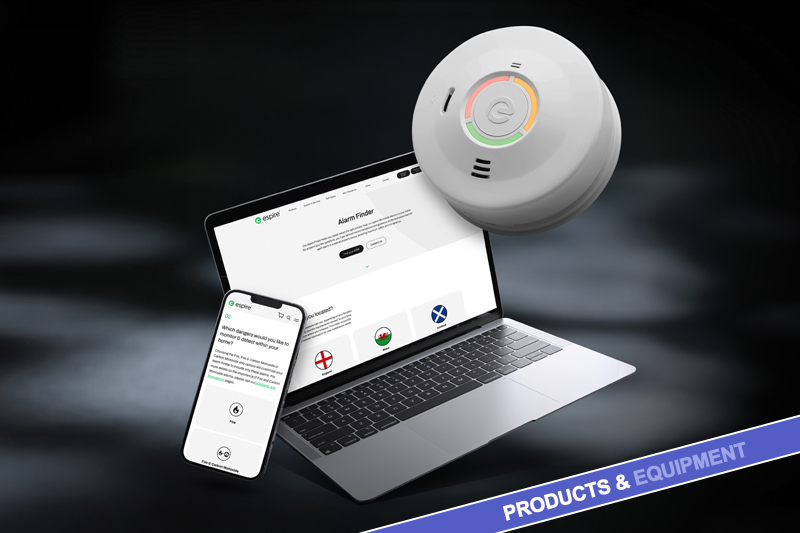ESP’s Managing Director, Neil Baldwin, provides a detailed look at the area of commissioning, as outlined in the BS5839 standard documentation.
The process of commissioning involves thorough testing of the installed system to ensure that it operates correctly in accordance with the recommendations of this standard and with the purchasing specification. At completion of commissioning, it also needs to be confirmed that all relevant documentation has been handed over to the user. The organisation responsible for commissioning the system might, or might not, be the same organisation that designed and/or installed the system, but the responsibility for commissioning needs to be clearly defined prior to the start of the installation work.
It is not, in general, the responsibility of the commissioning engineer to verify conformity of the design, or of the installation work, to this part of BS 5839 (i.e., with Section 2 and Section 4 of the standard). In general, the responsibility of the commissioning engineer is to verify that the system operates correctly in the manner designed and that the installation workmanship is generally of an adequate standard. However, in practice, it might be difficult to ensure that the system complies in full with all recommendations of Section 2 until the time of commissioning. For example, commissioning might represent the first (and only) opportunity to determine whether the number and distribution of fire alarm sounders is sufficient to enable compliance with ‘clause 16.2’ in respect of sound pressure levels. Similarly, commissioning presents an opportunity to ensure that structural features of the building, of which the designer might have been unaware, do not compromise the effectiveness of the system as it was originally designed.
Verifying compliance
Accordingly, it is necessary for anyone responsible for commissioning a fire detection and fire alarm system to possess at least a basic knowledge of fire alarm design practices and of the recommendations of Section 2 and Section 4 of the standard. It is also necessary for the commissioning engineer to be provided with the specification for the system. In view of the importance now attached to the avoidance of false alarms, it is also essential that the commissioning engineer is able to verify compliance with, at least, the principles discussed in Section 3 of the standard.
Full fire protection package
As well as offering a comprehensive range of fire protection systems for the professional electrical contractor market, ESP provides its own commissioning service, which ensures that all installed ESP systems operate correctly and are fully compliant with the latest BS5839 regulations. This allows ESP to offer a full fire alarms systems package, with access to a free design service, a vast choice of products and solutions including the latest two-wire systems, the commissioning service, plus technical support from a team of qualified and experienced engineers.
There is much more to commissioning a fire protection system than simply turning it on and setting detector addresses. It involves going through a comprehensive step-by-step checklist to ensure full compliance with the correct British Standard and carrying out a range of tests to ensure reliable and trouble-free operation. ESP’s commissioning service ensures that a qualified engineer will confirm that the system has reached the relevant British Standard, and they will issue a certificate on completion of the project prior to system handover. Dedicated ESP commissioning engineers are located throughout the UK to provide access to this valuable service to a wide-reaching audience.
BAFE accreditation
Further endorsement of ESP’s credentials is the company’s BAFE (British Approvals for Fire Equipment) accreditation for its fire design service. BAFE is the independent registration body for Third Party Certified fire safety service providers across the UK, and ESP now appears on the National BAFE Fire Safety Register.
BAFE manages and maintains a Scheme called BAFE SP203-1 which covers Fire Detection and Alarm Systems. This Scheme exists to deliver quality, independent evidence that providers – like ESP – are competent to deliver fire system designs for its fire detection and alarm systems. ESP was only permitted to become BAFE Registered and appear on the national BAFE Fire Safety Register once the company had the appropriate/valid Third-Party Certification. ESP continues to meet the criteria of the relevant BAFE Scheme. This establishes robust evidence of competency requirements that demonstrates the provider’s commitment to quality. It also provides assurances to ESP’s customers that the company will deliver a fire system design that complies with all the relevant British Standards.
Comprehensive competency requirements
The BAFE Scheme is a set of comprehensive competency requirements that have been developed to incorporate the high quality standards and best working practice for services within the fire safety industry. It is a legal requirement for all non-domestic/commercial properties to be equipped with fire detectors and fire alarms. It is also part of these requirements to ensure they are designed, installed and maintained appropriately, and ready to activate in the event of a fire. At ESP we strongly recommend using an appropriate Third Party Certificated provider. This demonstrates that the person or team appointed to be responsible for fire safety in a building has acted with due diligence to source a competent provider for any design, install, commissioning and maintenance works.
For more information, click here





